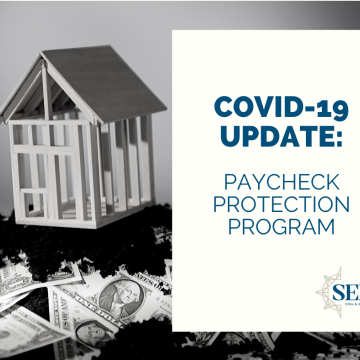Good records are the key to tax deductions and trouble-free IRS audits
If you operate a small business, or you’re starting a new one, you probably know you need to keep records of your income and expenses. In particular, you should carefully record your expenses in order to claim the full amount of the tax deductions to which you’re entitled.
PPP Flexibility Act eases rules for borrowers coping with COVID-19
As you may recall, the Small Business Administration (SBA) launched the Paycheck Protection Program (PPP) back in April to help companies reeling from the economic impact of the COVID-19 pandemic.
Rebuilding your nonprofit’s board
In times of turmoil, your board of directors should be your not-for-profit’s rock-solid foundation. But what if your board is understaffed or simply doesn’t provide the leadership your nonprofit requires? Think about rebuilding it — and the sooner the better.
Seniors: Can you deduct Medicare premiums?
If you’re age 65 and older, and you have basic Medicare insurance, you may need to pay additional premiums to get the level of coverage you want. The premiums can be costly, especially if you’re married and both you and your spouse are paying them.
Does your company have an emergency succession plan?
For business owners, succession planning is ideally a long-term project. You want to begin laying out a smooth ownership transition, and perhaps grooming a successor, years in advance.
The latest news on nonprofit fraud is here
Every two years, the Association of Certified Fraud Examiners (ACFE) publishes what has become the definitive guide for preventing and detecting workplace fraud.
Should you “park” your vehicle in a living trust?
Using a revocable trust — sometimes referred to as a “living trust” — is a common estate planning strategy to manage one’s assets during life and to avoid probate at death. For the trust to be effective, you must “fund” it, meaning transferring ownership of your assets to the trust.
A nonworking spouse can still have an IRA
It’s often difficult for married couples to save as much as they need for retirement when one spouse doesn’t work outside the home — perhaps so that spouse can take care of children or elderly parents. In general, an IRA contribution is allowed only if a taxpayer has compensation.









